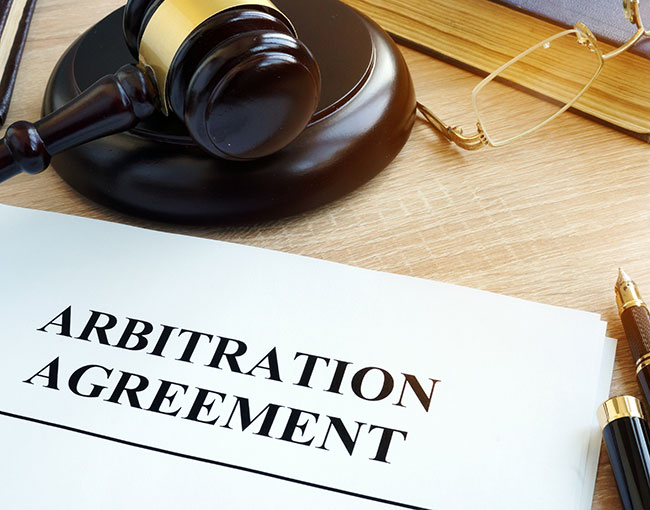


A recent ruling from the U.S. Supreme Court was lauded by employers for upholding the enforcement of arbitration agreements in employment contracts. An analysis of the ruling shows that it likely extends the same benefit to institutions of higher education on an issue of key importance in recent years: The ability of schools to include arbitration provisions in their enrollment agreements.
In this post, we’ll provide background on arbitration agreements, detail the U.S. Department of Education’s changing stance toward the provisions and provide five things schools should keep in mind as they review their enrollment agreements in light of the court’s ruling.
The Federal Arbitration Act (FAA), as interpreted by the U.S. Supreme Court, provides that pre-dispute arbitration agreements are generally valid and enforceable. The FAA implements a strong federal policy favoring arbitration of disputes.
Many schools have taken advantage of the FAA and included provisions in their enrollment agreements that require arbitration of any disputes that might arise between them and their students. As compared to litigation, arbitration offers many advantages that can benefit both schools and students. Arbitration is usually cheaper and faster than litigation, involves simpler procedural and evidentiary rules, is more flexible as to discovery and hearings, allows schools and students to keep their disputes confidential, and permits schools to avoid class actions and limit their risk.
However, in 2016, the Department of Education issued a “borrower defense” rule that, among other things, banned schools from using or enforcing pre-dispute arbitration agreements with students. The Department’s ban on pre-dispute arbitration agreements, which was to take effect on July 1, 2017, seemed to run afoul of the FAA. Although the Department conceded that it did not have the authority to displace or diminish the effect of the FAA, it nevertheless asserted that it had implicit authority to ban pre-dispute arbitration agreements under 28 U.S.C. § 1087d(a)(6) of the Higher Education Act (HEA), which provides that a program participation agreement shall include, among other things, “such other provisions as the Secretary determines are necessary to protect the interests of the United States and to promote the purposes of this part.”
After the election of President Trump, the Department delayed the effective date of the new rule and indicated that it would issue a different rule that will allow schools to use pre-dispute arbitration agreements so long as they make certain disclosures to students. Of course, under a new administration, the Department could revert to its prior course and attempt to reinstate its ban on pre-dispute arbitration agreements. Fortunately for schools, a recent decision by the U.S. Supreme Court indicates that the Department cannot do so.
In Epic Systems Corp. v. Lewis, the Supreme Court ruled that employment arbitration agreements that banned class action claims in arbitration were enforceable under the FAA notwithstanding the National Labor Relations Act (NLRA). The Supreme Court ruled that the NLRA does not displace the FAA and does not affect employment arbitration agreements because the NLRA does not contain a clear and manifest intent by Congress to have such an effect.
Like the NLRA, the HEA does not contain a clear and manifest congressional intention to displace the FAA; indeed, the HEA is silent about arbitration. Under the Supreme Court’s reasoning in Epic Systems, the Department likely lacks the authority under the HEA to override the FAA and ban pre-dispute arbitration agreements between schools and students.
Even with the Supreme Court’s favorable precedents as to arbitration, there are several important considerations for schools that seek to require binding arbitration of disputes with their students.
Jeff Fink has defended higher education institutions in litigation and arbitration proceedings across the country.